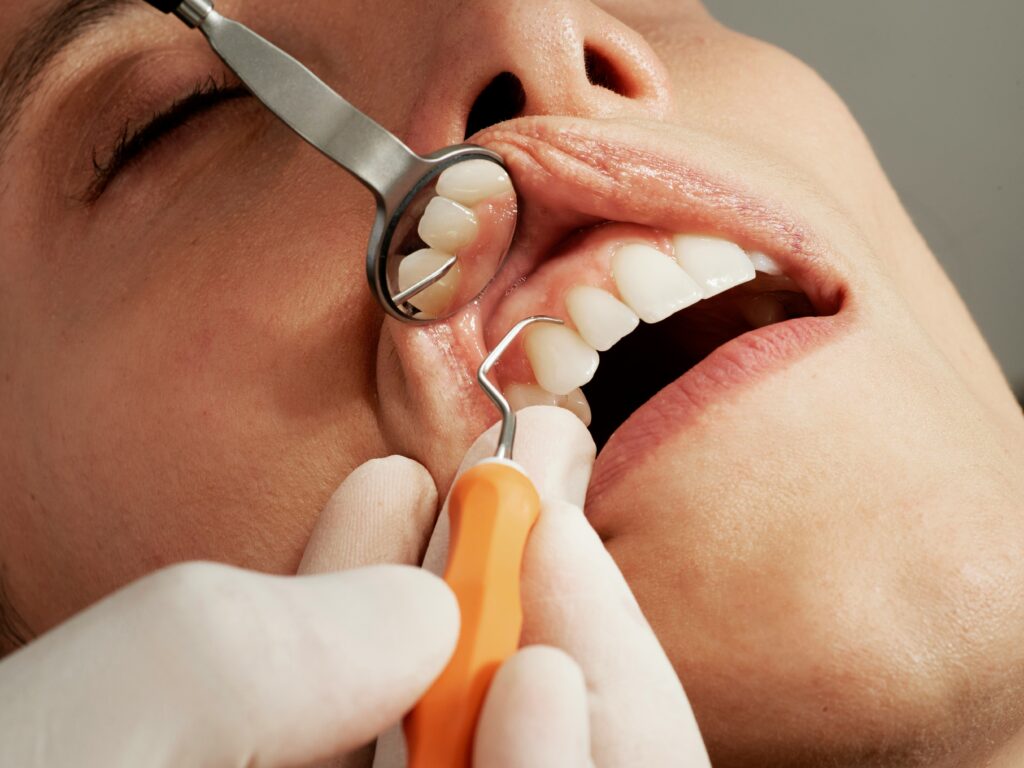
Periodontology is the field of dentistry focused on the prevention, diagnosis, and treatment of periodontal tissue diseases, which are the tissues that support the teeth. These include the gums, alveolar bone, periodontal ligament, and the cementum of the tooth. The main goal of periodontology is to maintain the health of periodontal tissues to ensure tooth stability and prevent more serious complications that could lead to tooth loss or other effects on oral and general health.
Periodontal Tissue Diseases
The most common gum disease is gingivitis, an inflammation of the gums usually caused by bacterial plaque buildup. If untreated, gingivitis can progress to periodontitis, a more severe condition where inflammation and infection penetrate deeper into the periodontal tissues and cause the destruction of alveolar bone. Periodontitis can lead to tooth loss if not treated promptly.
Causes and Risk Factors
The primary causes of periodontal diseases include poor oral hygiene, which allows plaque buildup, smoking, genetic predisposition, and systemic conditions such as diabetes. Poor nutrition and stress can also increase the risk of developing periodontal diseases.
Treatment and Prevention
The treatment of periodontitis involves removing plaque and tartar through deep cleaning which is usually made under topical anesthesia and the use of antibacterial solutions. In more severe cases, surgical interventions may be required, such as periodontal tissue restoration or bone grafts. However, prevention remains the best treatment, with daily oral hygiene, regular dental visits, and avoiding smoking.
Periodontology, therefore, represents a crucial branch of dentistry that ensures oral health and prevents serious conditions that could affect not only the teeth but also the body’s overall health.
